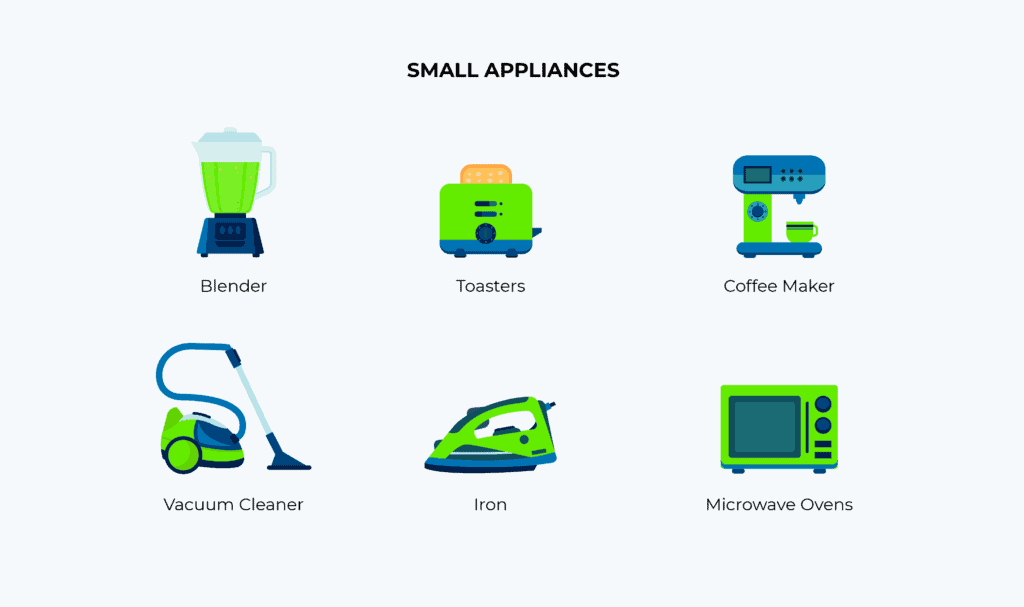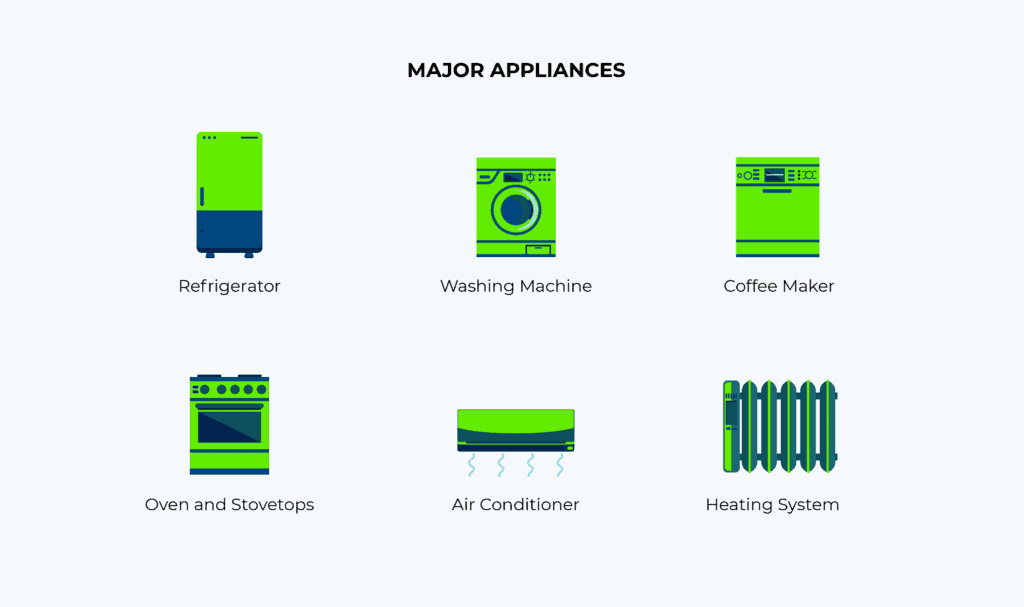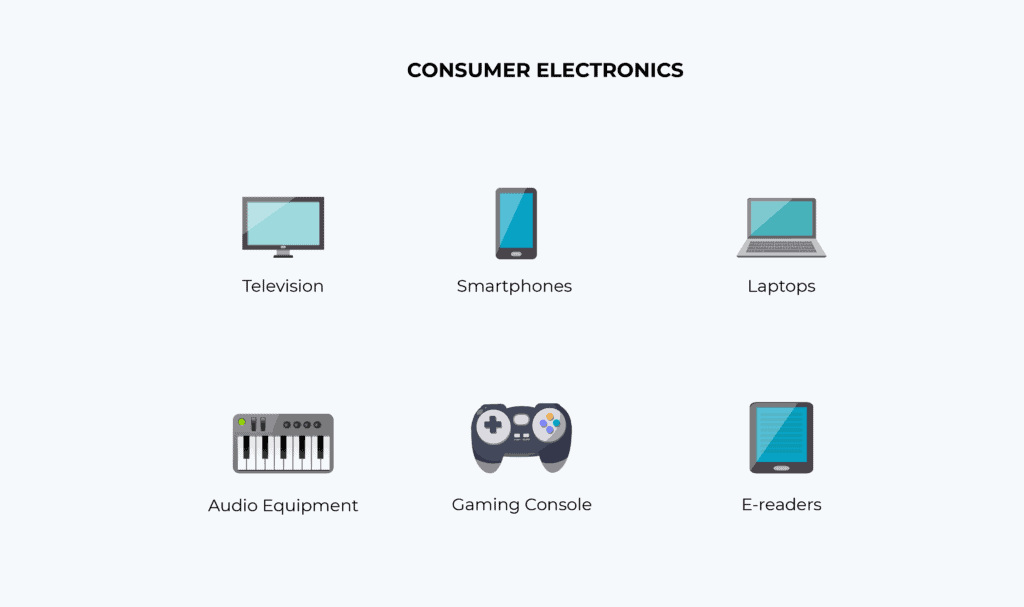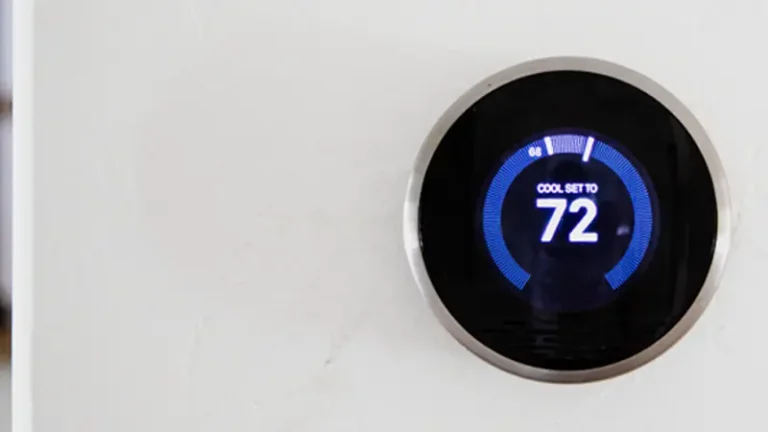In the hustle and bustle of our daily lives, we often take the convenience of appliances for granted. Whether you’re sipping a freshly brewed cup of coffee in the morning, preparing a quick meal, or washing your clothes with minimal effort, appliances play a pivotal role in making our lives more comfortable and efficient. But what exactly are appliances, and how have they become integral to our daily routines?
Table of Contents
Defining Appliances
Electrical or mechanical devices that are designed to perform specific tasks within homes, offices, and industrial settings. These tasks range from cooking, cleaning, food preservation, and climate control to entertainment and information technology. The primary purpose of appliances is to simplify and automate various household chores and activities, thereby saving time and energy.
3 Main Types of Appliances
Small Appliances
Small appliances are typically compact, portable, and designed to assist with specific tasks in the kitchen and around the house. These appliances are often used for food preparation and various household chores.
Here are some common examples :

- Blenders
- Toasters
- Coffee Makers
- Iron
- Vacuum Cleaners
- Microwave Ovens
Major Appliances
Major appliances, also known as white goods, are larger and typically more permanent fixtures in a home. These appliances perform essential functions and are crucial for daily living.
Here are some common examples :

- Refrigerators
- Washing Machines
- Dishwashers
- Ovens and Stovetops
- Air Conditioners
- Heating Systems
Consumer Electronics
Consumer electronics refers to a wide range of electronic devices designed for entertainment, communication, and personal use. These devices often have screens and user interfaces.
Here are some common examples :

- Television Sets
- Smartphones and Tablets
- Laptops and Computers
- Audio Equipment
- Gaming Consoles
- E-readers
The Impact of Appliances on Our Lives
The concept of appliances has been around for centuries, with early iterations being simple tools like knives and grinding stones. However, the modern age of appliances began in the late 19th and early 20th centuries with the advent of electricity and advancements in engineering. This allowed for the creation of more complex and efficient devices.
Refrigeration, for instance, revolutionized food storage, reducing the need for daily trips to the market and helping to prevent food spoilage. The washing machine transformed the labor-intensive chore of hand-washing clothes into a more manageable task. And the microwave oven redefined how we heat and cook food, making meal preparation faster and more convenient.
Today, appliances are smarter and more energy-efficient than ever before. Internet connectivity and artificial intelligence have enabled appliances to be remotely controlled, schedule tasks, and even communicate with each other, enhancing convenience and efficiency in our lives.
While appliances have undoubtedly improved our quality of life, their widespread use has raised concerns about their environmental impact. Energy consumption and the disposal of older, less efficient appliances contribute to carbon emissions and electronic waste. As a response, manufacturers are continually developing more energy-efficient and eco-friendly appliances, promoting responsible disposal and recycling practices.
Conclusion
In essence, appliances are the unsung heroes of modern living, transforming our homes into convenient and comfortable spaces. From the kitchen to the living room, and even to our workplaces, appliances simplify our daily routines, allowing us to focus on the things that matter most. Understanding the types and history of appliances can lead to a greater appreciation of the technology that surrounds us. Moreover, as technology continues to evolve, the future holds the promise of even smarter and more environmentally friendly appliances, further enhancing our quality of life.
Frequently Asked Questions
How can I choose the right appliances for my home or business needs?
To choose the right appliances, consider your specific needs, energy efficiency, brand reputation, and budget. Research and read reviews to make informed decisions.
How do I maintain and prolong the lifespan of my appliances?
Regular cleaning, following the manufacturer’s maintenance guidelines, and promptly addressing any issues can help extend the life of your appliances.
What is the expected lifespan of common appliances?
The lifespan of appliances varies, but as a general guideline: refrigerators can last 10-15 years, washing machines 8-12 years, and ovens 10-15 years.
Are there any safety tips I should keep in mind when using appliances?
Safety tips include reading and following the user manual, keeping appliances away from water sources, and ensuring proper ventilation for appliances like ovens and stoves.




